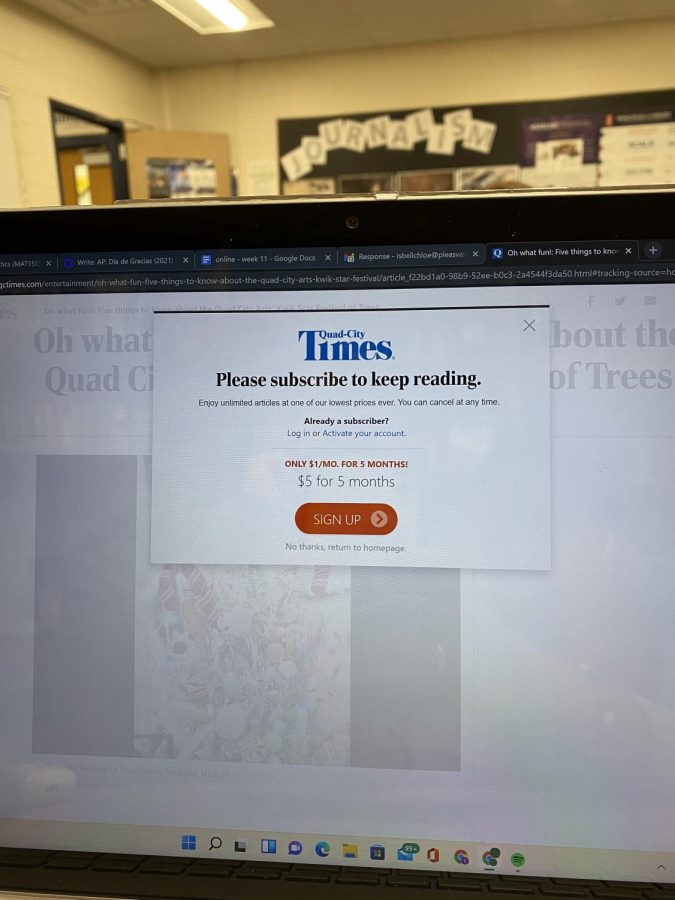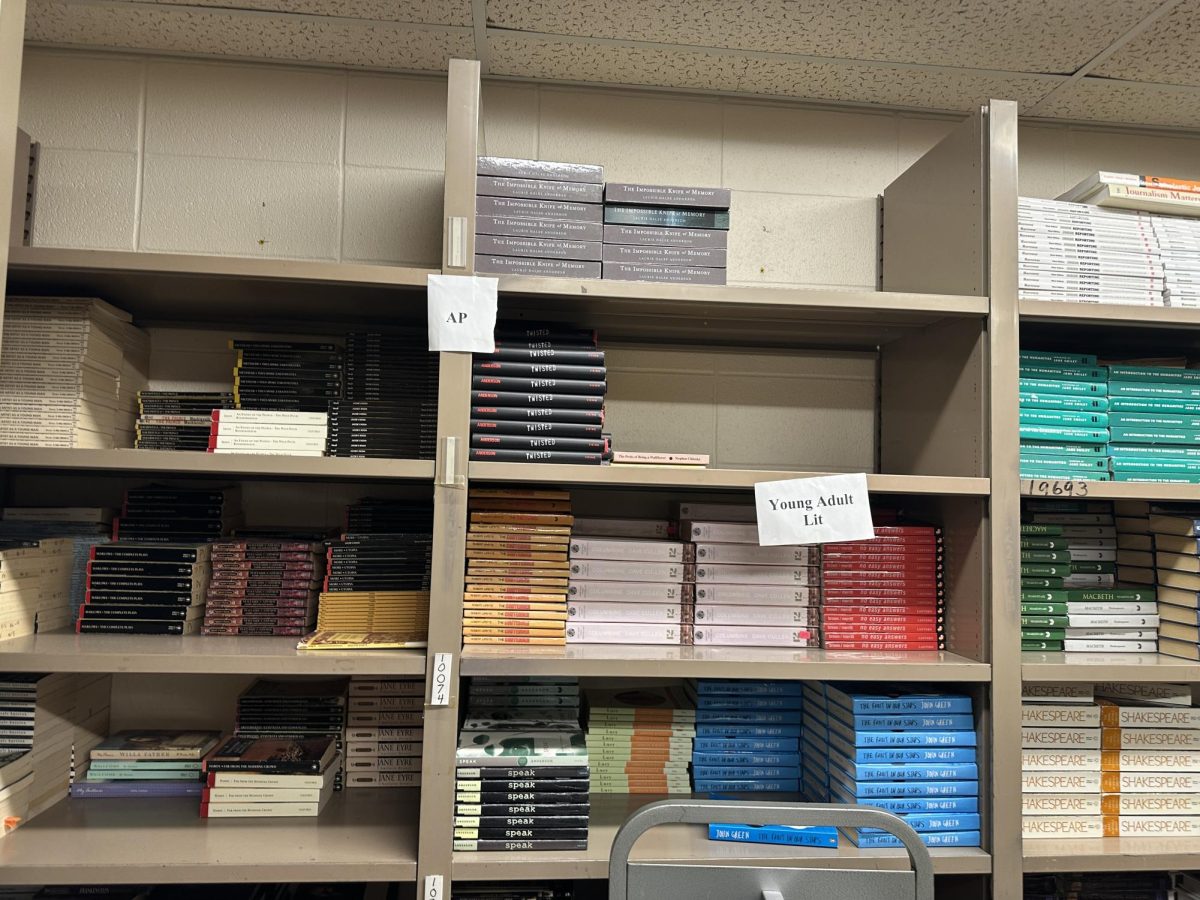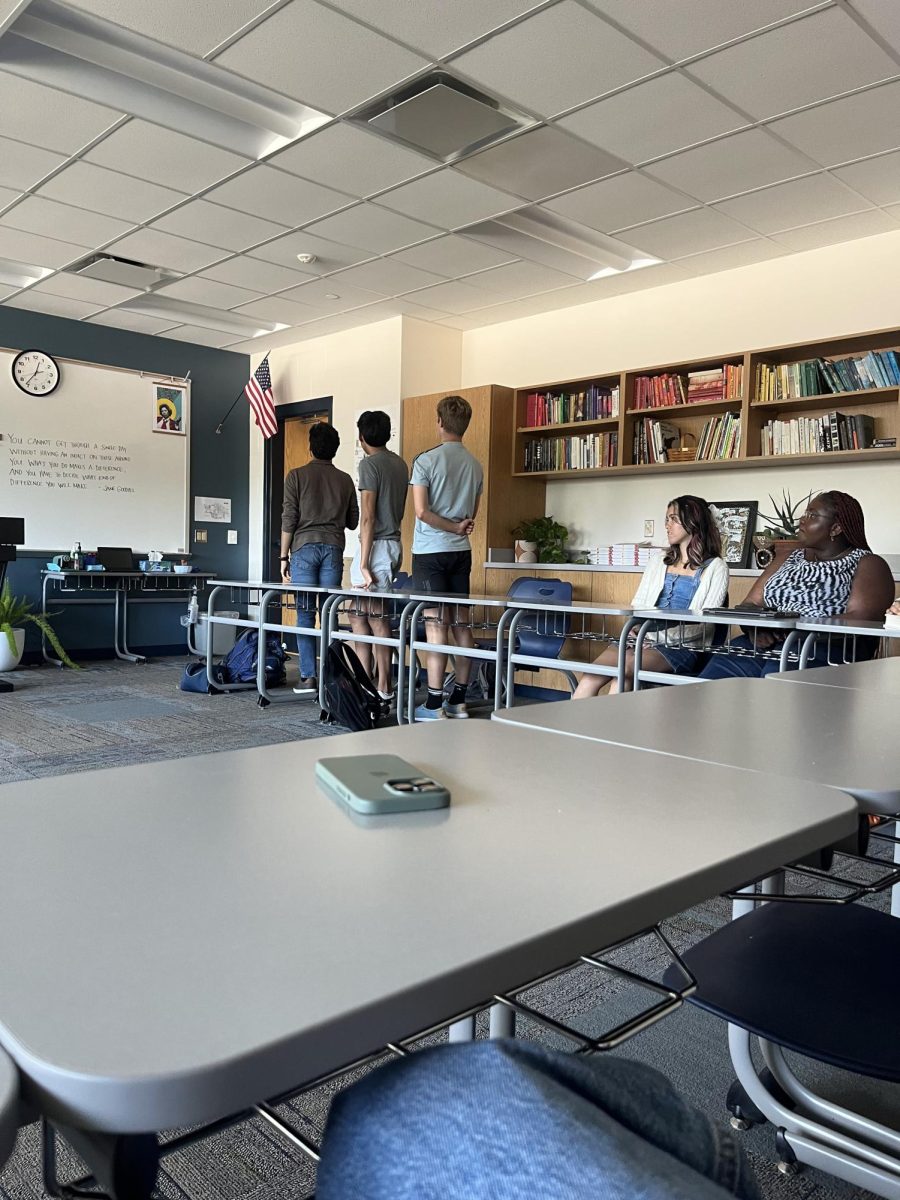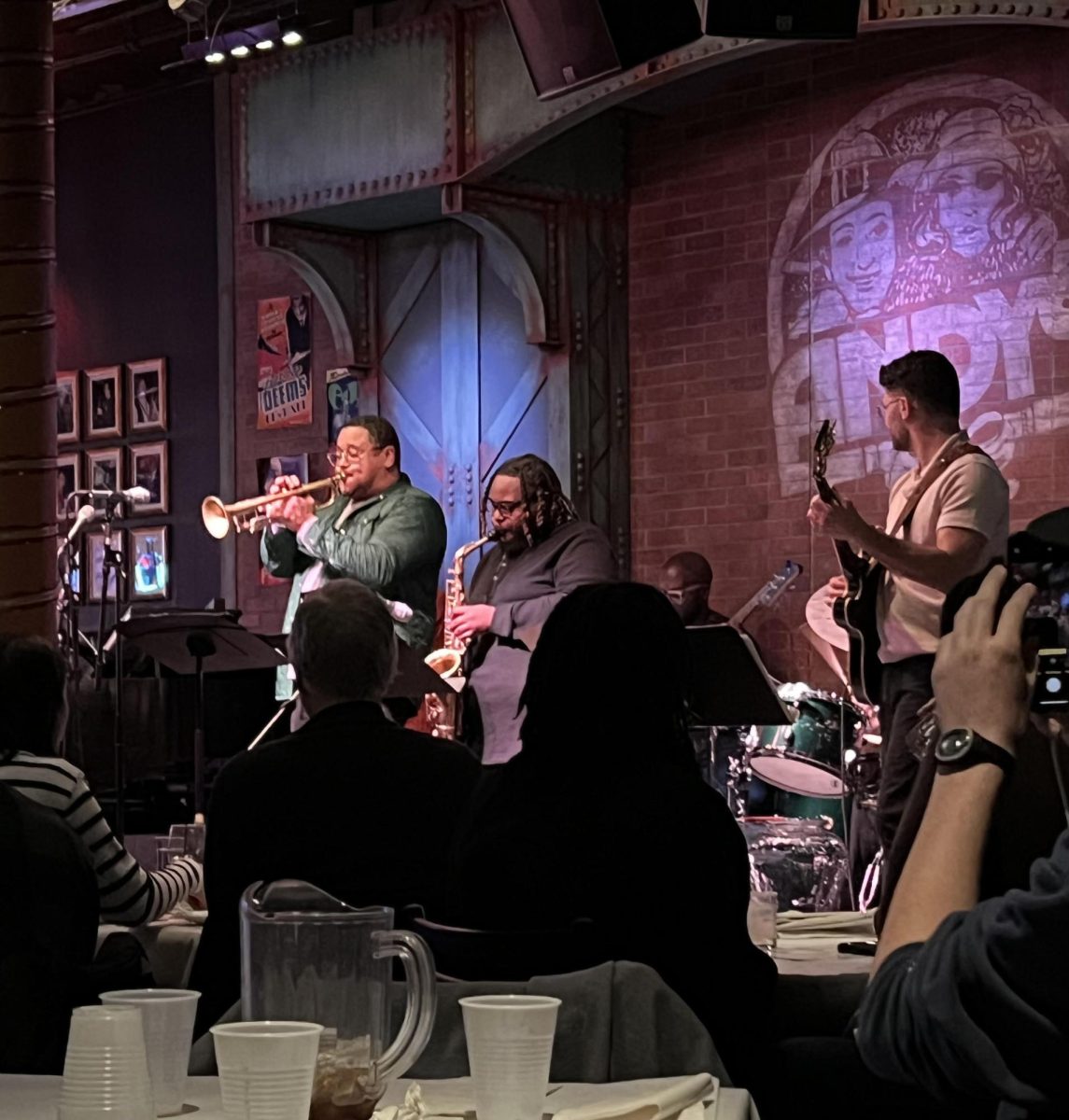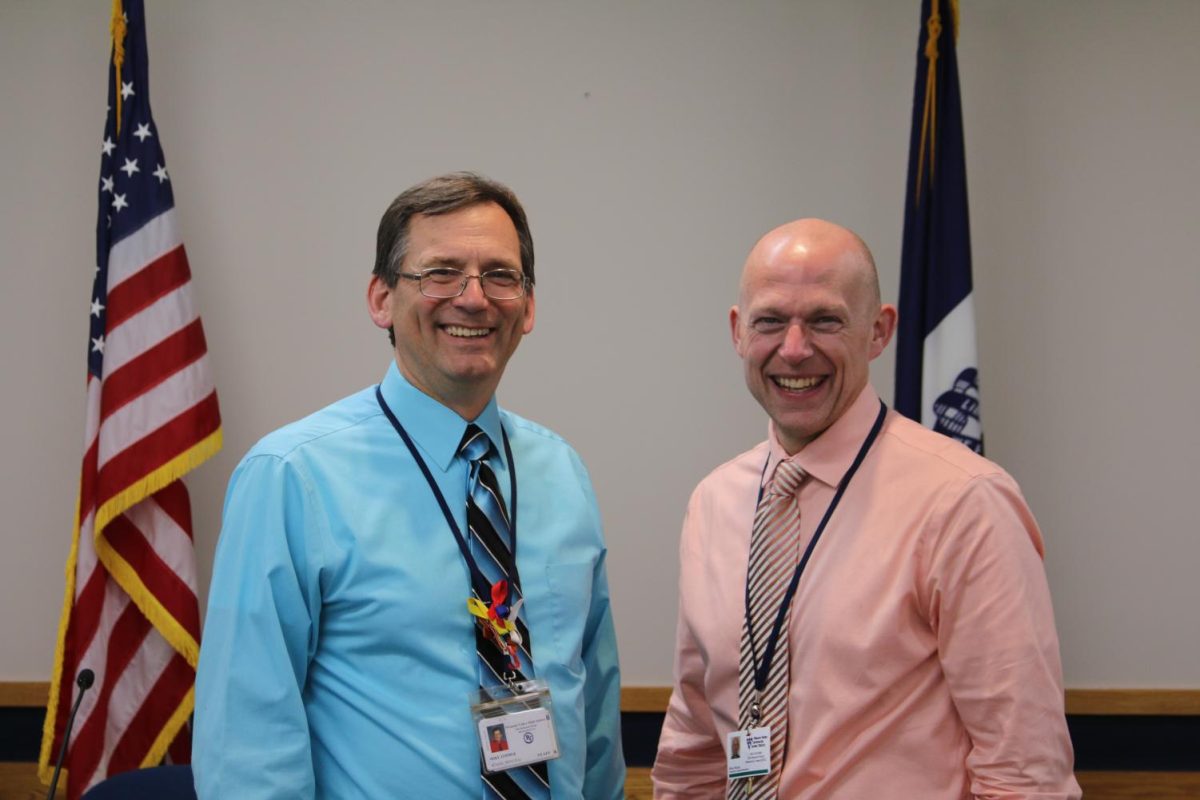Imagine you are doing research for a project. You find an article that appears informative, click the title and are immediately met with a paywall. You are frustrated, but you move on and perhaps find another source.
Now imagine you are looking up polling locations in your area or are trying to find critical updates regarding COVID and are met with the same result. You try to view another source but hit a paywall once again. What now?
News sites like the New York Times, the Washington Post, the Wall Street Journal and even local sites like the QC Times and the Des Moines Register have created a hierarchy that contorts the right to know into a privilege only those willing or able to pay are afforded.
Reporter for the World Economic Forum Carmen Ang broke down the number of subscriptions to popular news sites. The New York Times takes the lead with 7.5 million subscribers, while the Washington Post and the Wall Street Journal trail with three million and 2.4 million subscribers respectively. More than half of the outlets included in the World Economic Forum’s ranking are over 100 years old, meaning they are well-established news sites with loyal readers.
Ang elaborated on the increasing demand for trustworthy news. “Amidst the global pandemic, issues involving misinformation and fake news have helped reaffirm the important role that trusted news sources play in the dissemination of public information,” she said. “With this in mind, it’ll be interesting to see what the future holds for digital media consumption. With paywalls becoming increasingly more common, will consumers jump on board and eventually be more willing to pay for their news?”
But people are less concerned with consumer willingness to pay for news and more so with the ethics of putting a price on news to begin with.
Editor-in-Chief of the Spartan Shield news magazine Allisa Pandit explained the importance of ensuring news is widely available. “At PVHS, we use various methods to make sure our work in journalism is accessible to all students. Our print Spartan Shield can be found outside of our adviser’s room, and the online shield can be found at spartanshield.org,” she said.
Pandit expressed that she feels it is counterintuitive when news is not broadly accessible. “When major news outlets implement paywalls, they are defeating the true purpose of journalism: to keep people informed on local and global topics,” she said. “Not only do these paywalls keep valuable information away from people, but they also hinder other journalists from finding valuable research sources.”
So why exactly have so many online news sites implemented paywalls?
With seemingly permanent distrust embedded in the media, online news sites have taken advantage of the increased demand for reliable news by commodifying it. Additionally, by forcing readers to directly pay them, online news companies no longer have to depend on digital advertising. Paywalls eliminate the issue of ad-blockers which negatively impact revenue from such ads.
However, researchers Kat Williams and Scott R. Stroud of The University of Texas at Austin Center for Media Engagement pointed out a major implication. The rise of social media platforms like Facebook and Twitter where anyone can produce content easily while remaining anonymous has allowed free, less reliable news sources to release information that can go viral, regardless of its validity.
Williams and Stroud clarified, “This allows for fake news to be spread quickly and with little difficulty while real news is trapped behind paywalls.” And the reality is, not every American can afford to spare a couple dollars every week to go towards consuming news.
Founder and CEO of the Copia Institute and editor of the Techdirt blog Mike Masnick elaborated on this disparity in a post. “The people who pay for news in the U.S. are wealthier and better educated than those who do not,” Masnick explained. Therefore, “putting up a news paywall can cause completely unacceptable asymmetries in the quality of news accessible to people with different financial circumstances… [which goes] against every imaginable principle of democracy,” as explained by University of Cambridge PhD candidate and researcher Gianamar Giovannetti-Singh.
It is indisputable that millions of paid subscriptions can result in higher quality, better-researched news. But at what cost?
With the incidence of paywalls, many Americans will reluctantly give in and pay for their news; however, others will choose to find their news for free, meaning they will likely turn to social media sites which produce less reliable news.
While it is understandable that news sites must find a means for profit, to prey upon consumer distrust in the media and, as a byproduct, establish what is essentially an informational hierarchy is not only unethical – it is dangerous.
As more news sites start to adopt paywalls, your right to know may end up costing you more than money.



